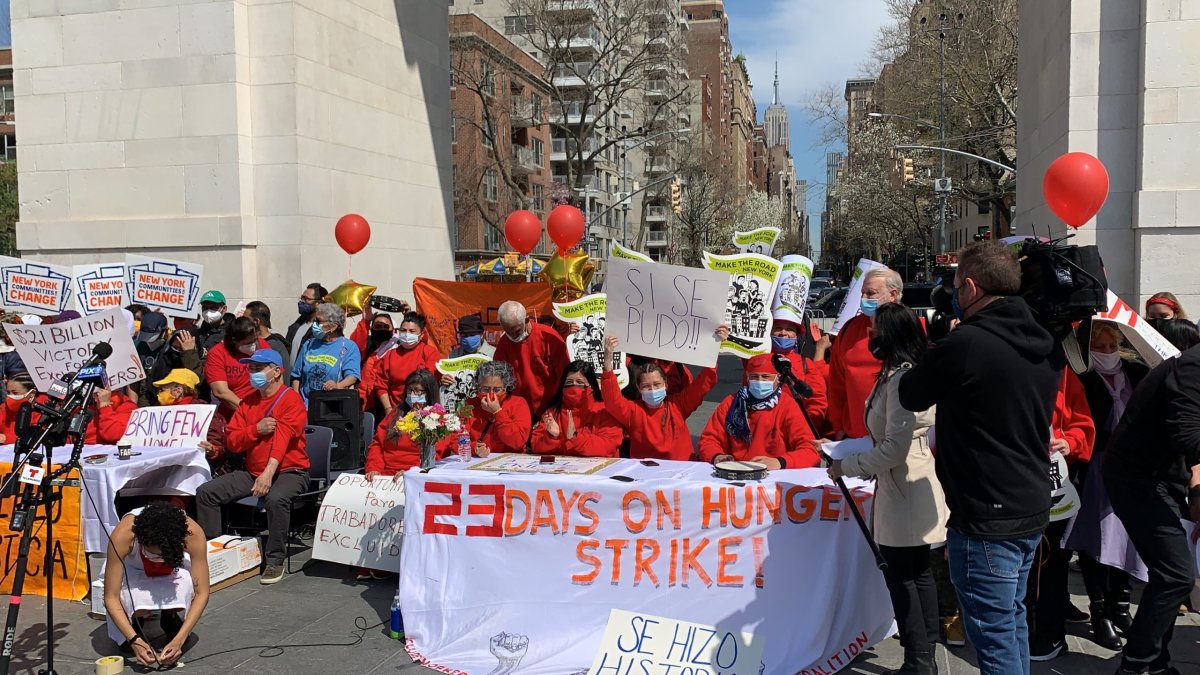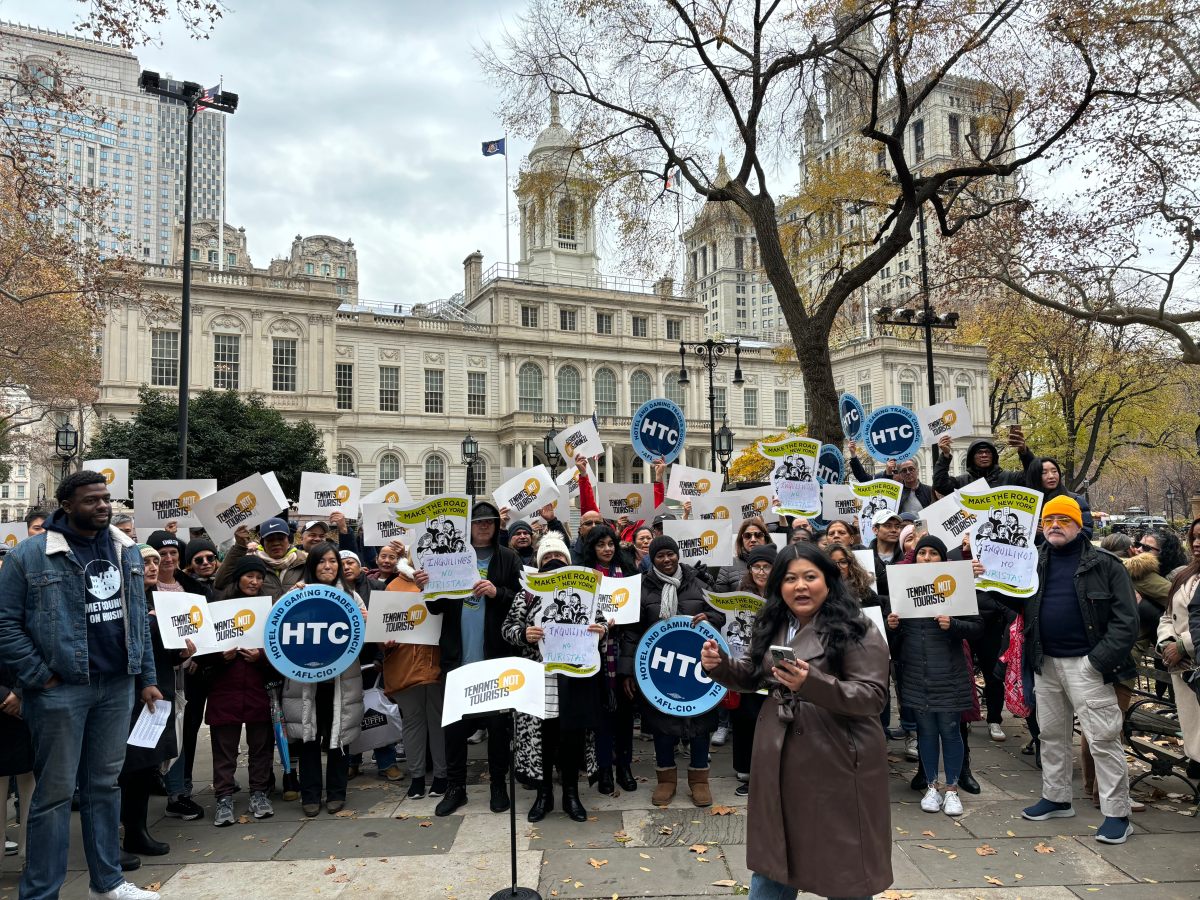The COVID-19 pandemic forced them from the shadows across Queens and led them to Albany one year later to fight for financial relief on behalf of hundreds of thousands of workers who were excluded from federal or state income support, forcing them to join food lines to feed their families.
They are called the excluded workers, and due to their political action since the start of the pandemic, they are now included in the $212 billion state budget deal that will establish a $2.1 billion fund for undocumented immigrants who have not received aid such as stimulus checks or federal unemployment benefits during the pandemic, even though studies show that they pay billions of dollars in taxes each year.
Nearly 30 undocumented immigrants from Queens took part in a 23-day hunger strike that drew national attention to their plight. Dozens more from the borough joined in marches and rallies outside the Executive Mansion in Albany, where they took their message to Governor Andrew Cuomo. More than 200 organizations in New York City and across the state formed the Fund Excluded Workers (FEW) coalition to represent the essential workers that were denied unemployment insurance after their jobs were lost during the economic shutdown.
“At the height of the pandemic, excluded workers launched a campaign calling for a multibillion-dollar fund to demand that New York do more than simply applaud their essential work. Today they have won a decisive victory to repair a long-standing gap in our state’s safety net: the first fund in the nation to provide relief at a scale that comes close to meeting the needs of excluded workers, designed to cover retroactive monthly benefits and include workers in the informal economy,” FEW coordinator Bianca Guerrero said. “This fund will finally provide relief to hundreds of thousands of workers across New York state who had previously been excluded from every single form of federal or state income support.”
In Queens, about 83,000 undocumented immigrants will qualify for the benefit with about 28,000 getting Tier 1 assistance up to $15,600 and nearly 57,000 getting Tier 2 assistance of $3,200, according to the Fiscal Policy Institute. The anticipated economic boost for Queens is estimated to be around $585 million.
“The fact that workers even needed to fight for this funding is a travesty,” Guerrero said. “The pandemic has made clear that the well-being of our communities is interconnected and the exclusion of some people hurts us all. It has laid bare racist exclusions in our social safety net that keeps some workers from basic support that’s essential to survival.”
The hunger strike came to an end Wednesday, April 7, with a rally at Washington Square Park.
“Today, our work today has been recognized. Our dignity has been recognized, and our dignity has been lifted by passing this fund,” hunger striker Ana Ramirez said. “It is more than $2.1 billion dollars. It is actually a recognition of undocumented workers. This is the future. This is the future that we’re leaving behind for our kids, and a reminder for those who doubted us. This is proof that we did it.”
The budget deal secured by the Democratic supermajority in Albany also creates a $2.35 billion pandemic relief fund for housing to protect New Yorkers who are behind on rent and facing eviction. The budget includes a record $29.5 billion in school aid, $2.4 billion for child care and $1 billion for small business recovery, programs that will be funded by federal stimulus and an increased income tax on the wealthy making more than $1 million a year.
“This budget is a moral document that reflects our values and our desire to rebuild in a way that leaves no one behind,” Senate Deputy Majority Leader Michael Gianaris said. “The wealthiest who have done so well will now help fund increased school aid, rental assistance, critical help for excluded workers and significant small business relief, among other important measures. We have more to do, but this budget reaffirms New York’s status as the most progressive state in the nation.”
State Senator Jessica Ramos, the chair of the Committee on Labor, became the lead sponsor of the legislation to support excluded workers, after her team distributed food to families in need from her Junction Boulevard district office. She represents the neighborhoods of Corona, Elmhurst, East Elmhurst and Jackson Heights that were known as the “epicenter of the epicenter” during the height of the pandemic last spring.
“The nation’s economy has long been built on the backs of our undocumented workforce, and their essential labor has helped keep our nation running throughout this pandemic,” Ramos said. “The fund created in the budget will go a long way in recognizing the vital contributions our undocumented New Yorkers have had on our state’s response and recovery, and I am hopeful other states will begin to do the same.”





































